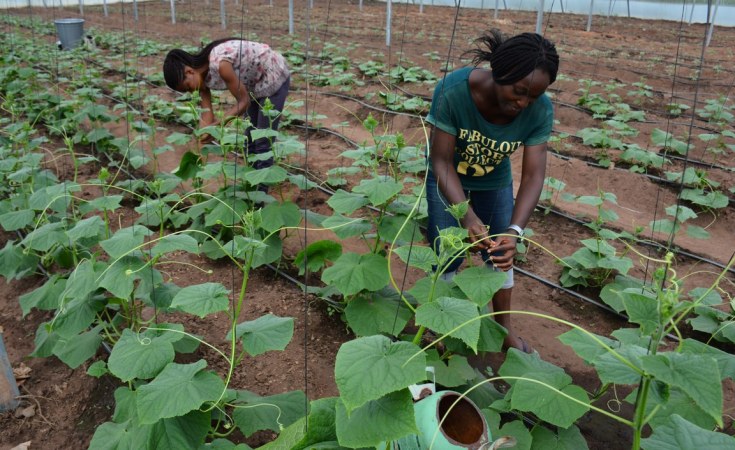In the months since coronavirus first emerged, scientists around the world swiftly pivoted to the pandemic response with many focused on developing a vaccine and mitigating the worst impact on the most vulnerable populations.
Across the agriculture sector, the COVID-19 response has meant ramping up efforts to support smallholder farmers and the rural poor to stave off a potential food crisis that could devastate the lives of an additional 132 million people.
Yet the pandemic has also impacted the very agricultural researchers that the world relies on to help build resilient agricultural production systems. From restricting travel to field sites and limiting activities in the lab to disrupting priorities and even funding, COVID-19 has severely undermined Africa’s agricultural research agendas, adding to the challenge of increasingly frequent climate-related shocks that the continent faces.
These challenges have also further compounded the persistent gender inequality in science, meaning that women researchers have faced even greater challenges in continuing their now essential work.
For example, with so many women continuing to assume the greater burden of childcare and other unpaid care work in domestic settings, working from home on scientific research has become even more challenging. Recent studies indicate that while male researchers’ productivity has increased in the pandemic, publication submissions by women have declined sharply since the pandemic began.
In addition, research indicates that men are also more likely to contract Covid-19 and suffer more serious outcomes, adding another layer of care work on women and further complicating the gender divide both in the home and the workplace. This comes as findings suggest that women face even greater levels of domestic violence as a result of travel restrictions and lockdowns in response to the pandemic.
This is why research and other institutions in Africa and around the world cannot afford to ignore gender. From government agencies to universities and private laboratories, institutions must become more gender responsive. This means responding to the needs and priorities of the diversity of men and women across agricultural value chains, both in farm families and in research processes, as part of the process of building back better from the pandemic and prospering beyond it.
Some institutions, especially in Africa are already leading the way. In many ways, the Covid-19 pandemic has led to the fast-tracking of more flexible arrangements that advocates of gender equality have been demanding for working mothers for some time. From remote working arrangements, to flexible hours and even online conferences, research institutions have made changes many did not think possible.
While progress thus far is remarkable, unfortunately the work is not yet completed since the ongoing crisis has also placed more and new demands on agricultural researchers, requiring longer working hours and a more difficult work-life balance.
To get the best from researchers and maximise the benefit of science to the pandemic recovery and food security, institutions need to go further by developing and institutionalizing responsive support mechanisms such as factoring in travel costs for children and allowing for sociable working hours.
For example, the Agroecology and Sustainable Intensification of Annual Crops Research Unit at CIRAD in France continued to host the Advanced Science Training initiative during lockdown that allowed researchers like Edith Mondedji from Togo to complete her research through working alone in the labs and attending virtual meetings.
This flexibility allowed Edith to master the technique and protocol for the determination of pesticide residues in agricultural products and food.
Meanwhile, initiatives like the One Planet Fellowship, for example, continue to unlock the benefits of gender responsive research, with a new, second cohort of Laureates carrying out research that recognises the role played by gender.
The Fellowship’s flexible approach has allowed scientists like Dr. Dohan Mariam Soba to win funding to investigate six different fertilization practices to help improve yield and Miriam Karwitha of Kenya to work with the World Bank on a project increasing smallholders’ access to information.
Covid-19 has given greater urgency and importance to the work of agricultural researchers, which in turn has made gender responsiveness in research ever more critical.
If researchers are to deliver solutions that protect men and women from hunger and poverty, they themselves must factor in the pervasive role of gender, both in the way they work and the research they produce. This must start from the top, by equipping leaders and researchers with the knowledge, skills and practices that pave the way for gender equality from the lab to the land.
Dr Wanjiru Kamau-Rutenberg is Director, African Women in Agricultural Research and Development (AWARD)


